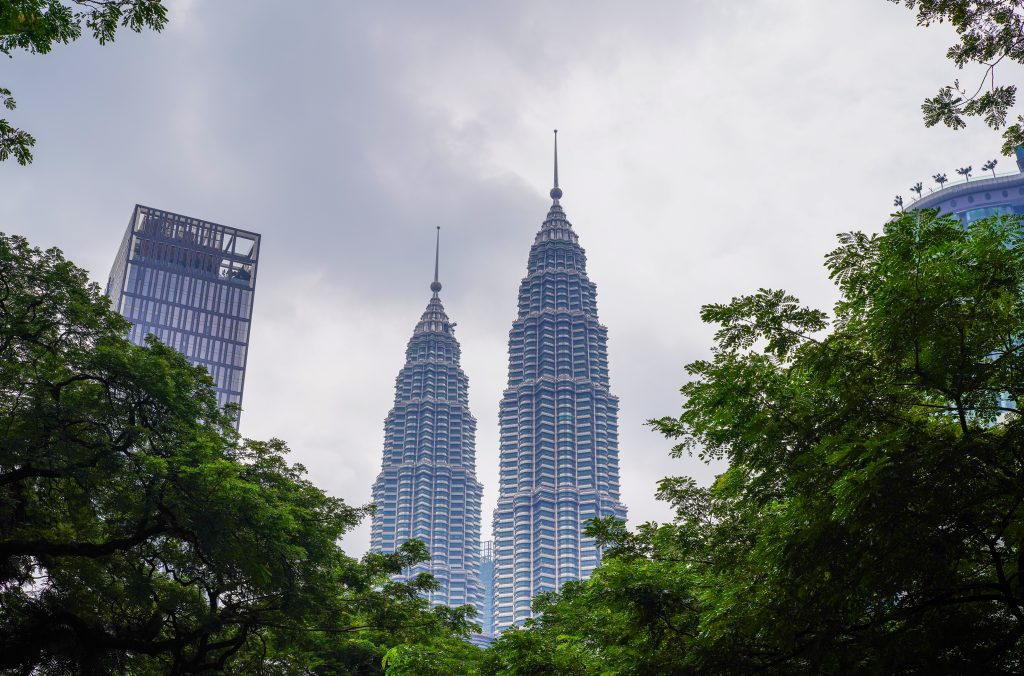Following a strong recovery from the COVID-19 pandemic, Malaysia’s economic growth decelerated from 8.7 per cent in 2022 to approximately 4 per cent in 2023. The economy was supported by robust domestic demand and improved labour market conditions, but weakness in the global economy adversely affected Malaysia’s heavily export-oriented economy.
A coalition government established in November 2022 under the leadership of Prime Minister Anwar Ibrahim alleviated political uncertainty, helping to make progress towards implementing structural reforms for the medium and long term.
Challenges still remain, such as growing ethnic polarisation. To facilitate Malaysia’s transition to high-income country status, the current government’s agenda emphasises advancing structural reforms to enhance labour productivity. Efforts are being made to pursue inclusive growth, specifically by raising the standard of living for low-income households.
The initiative, known as ‘Ekonomi Madani: Empowering the People’, was announced in July 2023 and outlines a 10 year economic development plan whose objective is to reconstruct an economy that is more resilient, competitive and sustainable.
The initiative establishes a medium-term economic growth target of 5.5–6.0 per cent. Crucial drivers of the plan include promoting economic integration with neighbouring countries, establishing a business-friendly environment to attract foreign direct investment, especially in the high-value-added manufacturing sector, and encouraging the formation of new enterprises. Priority is given to promoting domestic investment in digitalisation and green growth.
The initiative outlines a series of policies aimed at achieving inclusive growth in Malaysia, emphasising equitable wealth distribution. The minimum wage of 1500 Malaysian ringgit (US$320) is to be reassessed to stimulate wage growth. An initiative to enhance wages for low-income labourers by facilitating skills development will be tested with a progressive wage pilot program beginning in June 2024. Under this initiative, cash incentives will be offered to domestic companies whose low-wage employees enrol in a government-designated skills training program.
By promoting primary care and universal access to healthcare services and expanding safety nets to cover the informal sector, the government is also pledging to improve social security.
Malaysia’s government stresses the importance of fiscal consolidation. It has committed to reducing the fiscal deficit from 5 per cent of GDP in 2023 to 4.3 per cent in 2024. In the medium term, the fiscal deficit target is set at 3 per cent or below. The Fiscal Responsibility Act, approved by parliament in October 2023, serves as the foundation for fiscal consolidation by reaffirming the government’s dedication to enhancing governance, transparency and accountability.
Achieving fiscal consolidation will require additional efforts involving both revenue and expenditure. On the expenditure side, streamlining subsidies should be prioritised. Malaysia’s budget for fuel and other subsidies increased from 0.6 per cent of GDP in 2019 to 2.9 per cent of GDP in 2022. Reforms focused on inefficient and counter-progressive energy subsidies should be accelerated. The government reported that the top 10 per cent of electricity consumers enjoyed 50 per cent of energy subsidies in 2022. These subsidies should be immediately replaced with a more targeted approach aimed at low-income households.
On the revenue side, the tax framework must be reformed to reverse the decline in tax revenue per unit of GDP. Malaysia’s tax revenue per unit of GDP in 2021 was among the lowest in ASEAN at 11.8 per cent and compares unfavourably to Singapore’s 12.6 per cent and Thailand’s 16.4 per cent. To mitigate the decline in tax revenue, it is imperative to prioritise measures that augment the progressive nature of Malaysia’s personal income taxes and expand the consumption tax base. One possibility is the reintroduction of the goods and services tax eliminated in 2018.
Going forward, global economic growth is expected to slow. In November 2023, the OECD projected global economic growth in 2024 would be 2.7 per cent, down from 2.9 per cent in 2023. Tighter financial conditions, sluggish trade expansion and diminished business and consumer confidence have impeded the global economy’s growth trajectory.
Despite these headwinds, the Malaysian central bank foresees GDP growth in 2024 in the range of 4.0 and 5.0 per cent, a slight increase from 4.0 per cent in 2023, supported by robust domestic demand and stable employment. This forecast is consistent with the Asian Development Bank’s forecast of 4.6 per cent for 2024 announced in December 2023.
To achieve Malaysia’s long-term goal of becoming a high-income country while achieving inclusive growth, sound implementation of structural policies is essential. Strong political commitment to narrowing the gap between planning and implementation is key to attaining this goal.
Hidekatsu Asada is Associate Professor at the Graduate School of Humanities and Social Sciences (Economics), Saitama University, Japan.
This article is part of an EAF special feature series on 2023 in review and the year ahead.


After a swift recovery from the COVID-19 pandemic, Malaysia's economic growth has slowed from 8.7 per cent in 2022 to around 4 per cent in 2023, largely due to a weaker global economy impacting the country's export industry. Malaysia’s Madani Economy initiative, launched in July 2023, describes a long-term plan for encouraging economic growth by promoting economic integration, attracting foreign direct investment, increasing domestic investment in digitalisation and green growth, and focussing on equitable wealth distribution and social security.